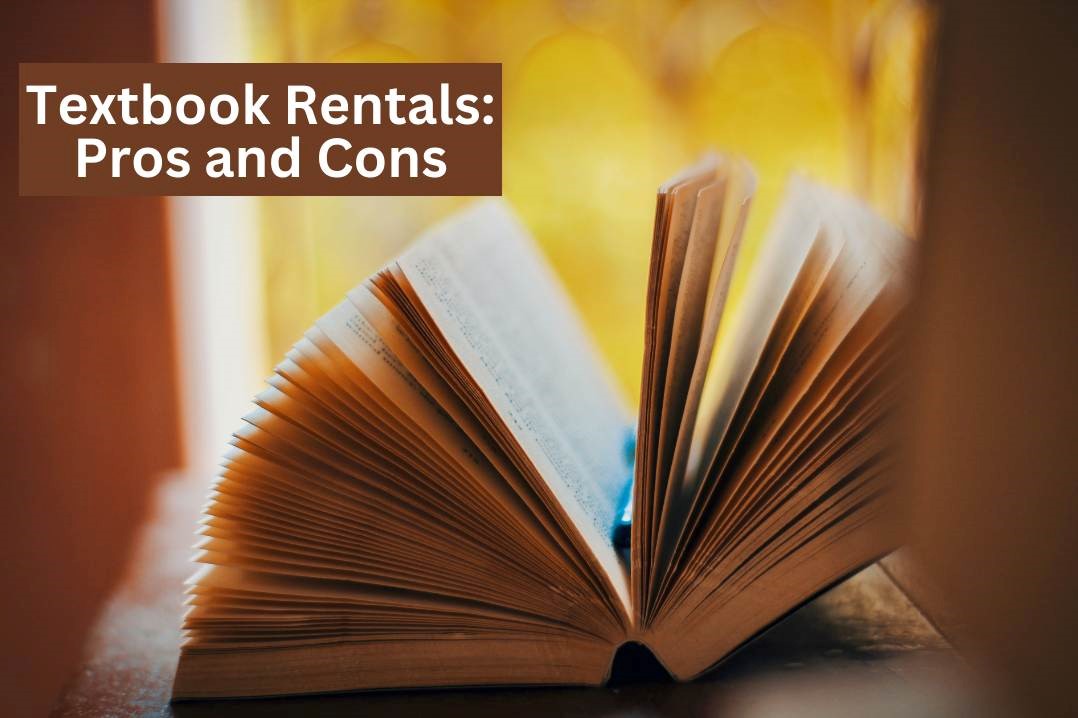Textbook rental programs allow students to rent textbooks for a fraction of the cost of purchasing them new. This can save students hundreds of dollars each year, especially when they have multiple courses that require expensive textbooks.
There are two main types of textbook rental programs:
- On-campus rental programs: These programs are typically offered by the campus bookstore. Students can rent textbooks for a semester or quarter, and they are required to return the books at the end of the term.
- Online rental programs:These programs are offered by a variety of companies, such as Chegg, Amazon, and eCampus. Students can rent textbooks for a semester, quarter, or even just a few days.
To rent a textbook, students typically need to create an account with the rental company and provide their billing information. Once they have created an account, they can search for the textbooks they need and add them to their cart. Once they have finished shopping, they can checkout and pay for their rental.
The rental company will then ship the textbooks to the student's address. Students are responsible for returning the textbooks at the end of the rental period, or they will be charged a late fee.
Benefits of Textbook Rentals
- Cost Savings
One of the primary reasons students opt for textbook rentals is the substantial cost savings. Purchasing brand-new textbooks can be financially burdensome, but rentals offer a cost-effective solution. By renting, students can access the same materials they need without breaking the bank.
- Flexibility
Textbook rental programs provide students with flexibility. You can choose the duration of the rental period, aligning it with your course schedule. This flexibility is especially useful for students taking courses of varying lengths or for those who prefer not to keep textbooks after the course ends.
- Sustainability
Renting textbooks contributes to environmental sustainability. It lessens the requirement for new book production, which aids in resource conservation and waste reduction. By participating in rental programs, students are making an eco-conscious choice.
Types of Textbook Rental Programs
Textbook rental programs come in various forms, each catering to specific needs and preferences. Here, we look at a few of the most typical types:
The eCampus Bookstore Advantage
eCampus.com offers a cost-effective and convenient alternative to traditional campus bookstore rental programs. With competitive pricing, a wide selection of textbooks, and online accessibility, students can find the materials they need at affordable prices and access them from anywhere.
Online Rental Platforms - A World of Options
Online rental platforms have revolutionized the textbook rental landscape. Websites like Chegg, Amazon, Windsorbooks and VitalSource have vast inventories, making it easy for students to find the books they need, whether they're studying a common subject or a niche topic. These platforms also offer various formats, including e-textbooks, which can be particularly convenient for students who prefer digital reading materials. Additionally, they often provide flexible rental durations, allowing you to choose precisely how long you need the book, whether it is for a full semester, a few months, or even just a few weeks. Some platforms even give you the option to purchase the book if you decide you want to keep it.
Peer-to-Peer Rentals - A Personal Touch
For those who enjoy the individualized touch of direct interaction, peer-to-peer rental services can be an appealing option. These platforms connect students who want to rent or lend textbooks directly to one another. It can be an excellent way to negotiate rental terms and potentially secure more competitive rates. However, the availability of textbooks on these platforms may vary, so it is essential to start your search early to ensure you can find the books you need in time for your courses.
Library Rentals - An Often Overlooked Gem
Public and university libraries have long offered an underutilized resource in the form of textbook rental programs. While they may not have the extensive selection of commercial platforms, library rentals are often free, making them an attractive option for budget-conscious students. However, it is crucial to note that availability can be limited, and you may need to plan well in advance to secure the textbooks you require. Library rentals also tend to have strict due dates, so it is important to return books promptly to avoid late fees.
How Textbook Rentals Work
Textbook rental programs typically follow a straightforward process:
Searching for Textbooks
When you begin your textbook rental journey, start by searching for the required textbooks on your chosen rental platform or at your campus bookstore. Take the time to verify the book's title, edition, and author to ensure you are renting the correct version required for your course.
Selecting Rental Duration
Once you have identified your textbooks, it is time to choose the rental duration. Rental durations typically align with your course schedule, with options ranging from semester-long rentals to shorter terms. Make sure to select the duration that covers the entirety of your course to avoid any issues.
Placing the Order
After you have added the selected textbooks to your cart, proceed to complete the order process. Provide all necessary information, including your shipping address and payment details. Double-check your order to ensure accuracy, as any mistakes in shipping information could result in delivery delays.
Receiving the Textbooks
Depending on the rental provider, your specified address will either receive the rented textbooks for delivery or the campus bookstore will make them available for pick-up. If they are shipped, ensure you keep track of the delivery date to make sure the books are received in time for the start of your classes.
Using and Maintaining Textbooks
Throughout the rental period, make efficient use of the textbooks for your courses. Handle them with care to avoid any damage that could result in additional charges when you return them. Consider using book covers or protective measures to keep the books in excellent condition.
Returning the Textbooks
Returning textbooks is a crucial step in the rental process. Be sure to return them by the specified due date to avoid late fees. Rental providers often provide clear instructions on how to return books, whether it is through mailing them back or dropping them off at the campus bookstore or a designated return location. Keep copies of any return receipts or tracking information for your records.
Confirmation of Rental Completion
Once the rental provider receives the textbooks in good condition and within the agreed-upon timeframe, your rental is considered complete. You are no longer responsible for the books, and any associated charges are finalized.
Comparison of Rental Programs
To help you make an informed choice, let us compare the key aspects of various textbook rental programs:
|
Aspect |
Campus Bookstore Rentals |
Online Rental Platforms |
Peer-to-Peer Rentals |
Library Rentals |
|
Cost |
Varies by institution |
Competitive pricing |
Negotiable rates |
Often free |
|
Selection |
Limited |
Extensive inventory |
Variable |
Limited |
|
Convenience |
On-campus access |
Online access |
Variable |
Limited |
|
Rental Duration Options |
Limited |
Flexible |
Flexible |
Semester-long |
|
Return Options |
On-campus return |
Shipping or drop-off |
Negotiable |
Library return |
In Summary
In summary, textbook rental programs offer students a viable and cost-effective solution for accessing essential course materials. Whether you choose campus bookstore rentals, online rental platforms, peer-to-peer exchanges, or library rentals, each option comes with its own set of advantages and considerations. By understanding the variety of choices available and the detailed rental process, you can make an informed decision that aligns with your academic and financial needs. Textbook rentals empower students to save money, reduce their environmental impact, and access high-quality educational resources.
References
- A Guide to Establishing Textbook Rental Services - Student PIRGs.(2019, March 5). Student PIRGs.
- General Information for students - Textbook Rental | UW-La Crosse. (n.d.). UW-La Crosse.
FAQs
- Is renting textbooks a cost-effective option for students?
Yes, renting textbooks is generally a cost-effective option for students. Compared to purchasing brand-new textbooks, renting allows you to access the required materials at a significantly lower cost. It is an excellent way to reduce the financial burden of higher education.
- How do I know if the textbook I need is available for rent?
You can check the availability of textbooks for rent by visiting your campus bookstore, exploring online rental platforms, or inquiring with your library. Most rental providers have search features that allow you to look up specific textbooks by title, author, or ISBN to confirm their availability.
- Can I highlight or write in rented textbooks?
The ability to highlight or write in rented textbooks can vary depending on the rental provider's policies. Many rental companies allow reasonable highlighting and note-taking, as long as it doesn't damage the book. However, it is essential to read and understand the rental agreement to ensure compliance with their rules.
- What should I do if I accidentally damage a rented textbook?
If you accidentally damage a rented textbook, you should immediately contact the rental provider or the campus bookstore from which you rented the book. They will guide you on the next steps, which may include potential replacement or repair fees. It is important to report any damage promptly to avoid additional charges.
- Can I extend the rental period if I need the textbook for longer than initially planned?
Whether you can extend the rental period depends on the rental provider's policies. Online rental platforms often offer the flexibility to extend rentals for an additional fee. Campus bookstores and libraries may have different rules, so it is advisable to check with them in advance if you anticipate needing the textbook for a more extended period.









